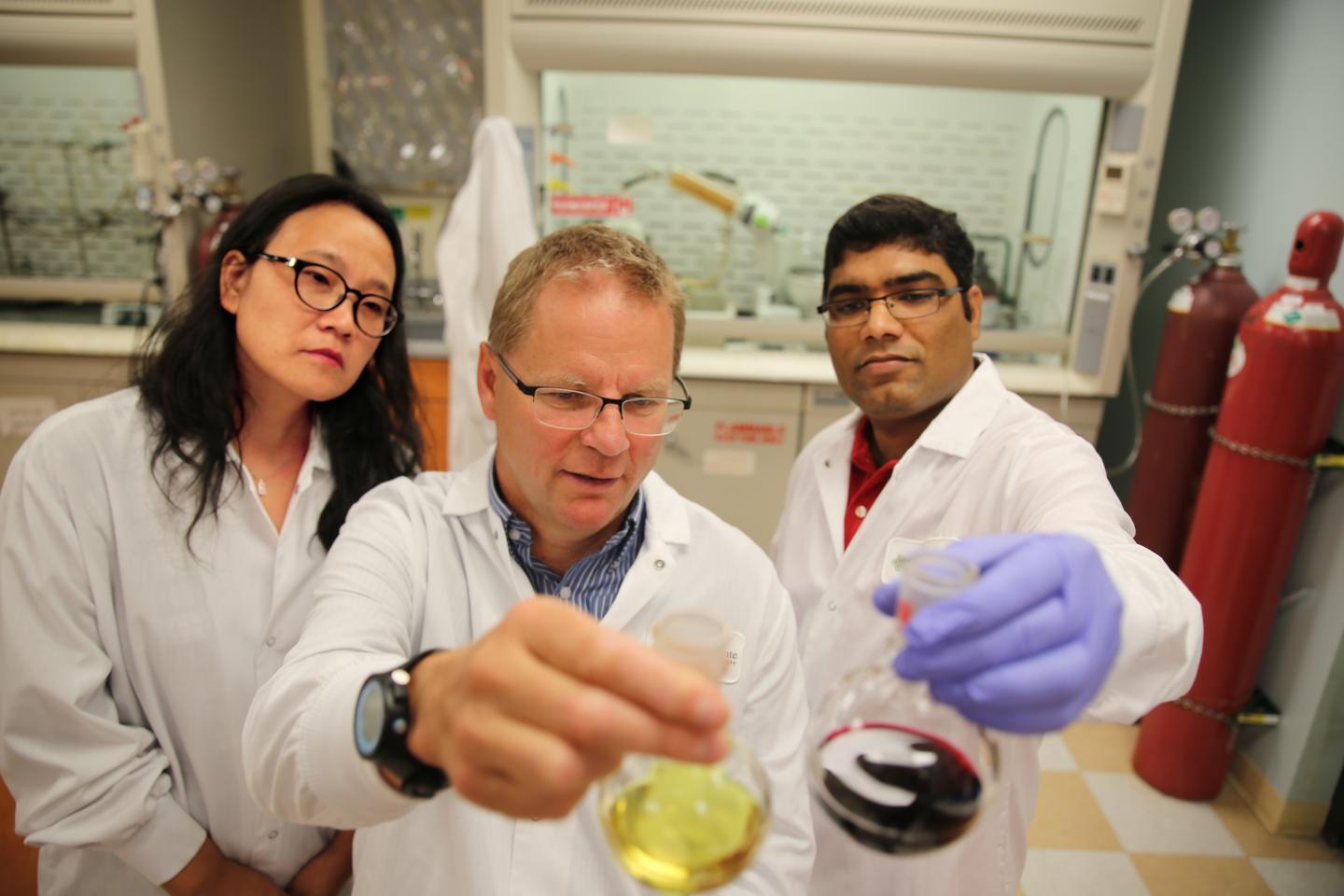
Credit: Portland State University
A team of Portland State University researchers who have discovered a possible one-pill cure for malaria has received a $3.15 million grant from the National Institutes of Health to further the research, with the goal of bringing it to clinical trials.
The basis of the potential cure is a compound based on a natural red pigment that comes from a soil bacterium. PSU chemistry professor Kevin Reynolds began researching the compound a decade ago after reading about its potential as a malaria treatment in a research paper from the 1970s. For one reason or another — whether inadequate technology or the variety of malarial cures already in existence — nobody had given the 1970s research much thought, Reynolds said, until he rediscovered it.
Reynolds enlisted fellow PSU chemistry researchers Jane Kelly and Papireddy Kancharla, and together they made and tested hundreds of variants of the original compound. They discovered a number of versions that could kill the malaria parasite in mice and in human blood with a single low dose.
Kelly said that over the last four years, the team worked with Medicines for Malaria Venture (MMV), a nonprofit partnership, to further test the compound’s potential. MMV found that not only was the compound effective at killing the malaria virus in blood, but it could kill it in the liver before it reaches the bloodstream.
“The liver stage is the key,” Kelly said. “The malaria virus gets in the liver first, so if you can catch it then, it’s much more effective in eliminating the disease.”
MMV also found that the compound is effective in killing the malaria virus in its reproductive stage, which prevents its transmission.
Malaria is a mosquito-borne parasite that has plagued humanity for as long as recorded history. Today, even with effective treatments for the disease and advancements in medical science, malaria kills about half a million people per year. Most of the deaths occur in sub-Saharan Africa and Southeast Asia. Most of the victims are children under the age of five.
PSU’s one-pill treatment, if it becomes a medicine for widespread use, would be revolutionary, not just as a cure, but as a preventative, according to Kelly.
The new NIH grant, paid to PSU in annual increments over five years, will allow the research team to further refine their compounds.
“Hopefully at end of year five, we’ll be at the pre-clinical evaluation stage – or, even better, clinical trials,” Kelly said.
Portland State is involved with other malaria research as well. Last fall, PSU spinoff company DesignMedix began human clinical trials on its anti-malarial drug, DM1157, which was designed to overcome the serious issue of growing drug resistance among malaria medicines.
###
About Portland State University
As Oregon’s only urban public research university, Portland State offers tremendous opportunity to over 27,000 students from all backgrounds. Our mission to “let knowledge serve the city” reflects our dedication to finding creative, sustainable solutions to local and global problems. Our location in the heart of Portland, one of America’s most dynamic cities, gives our students unmatched access to career connections and an internationally acclaimed culture scene. U.S. News & World Report ranks PSU as Oregon’s most innovative university and among the most innovative in the nation
Media Contact
Kevin Reynolds
[email protected]
Original Source
https:/




